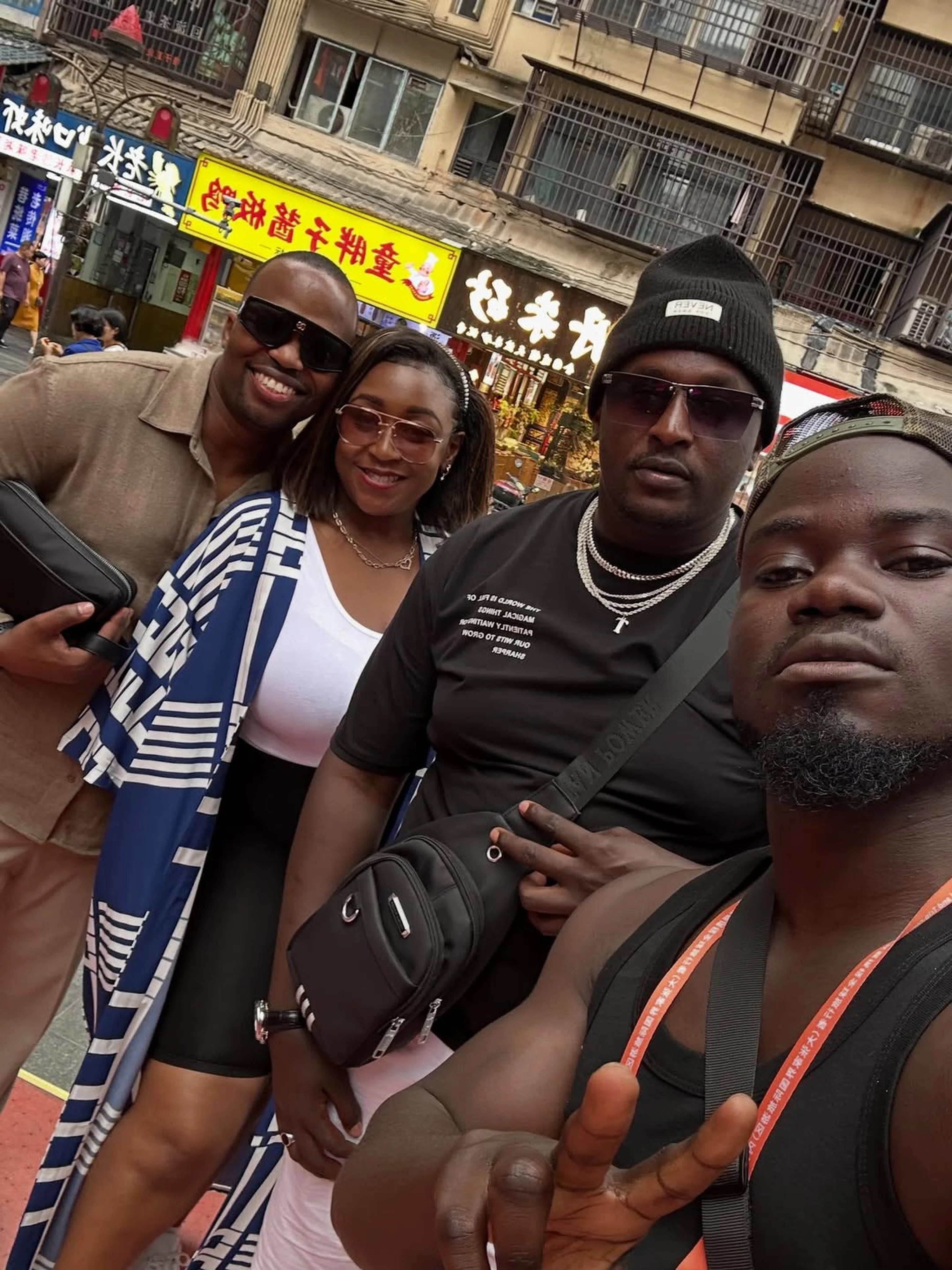By Jevans Nyabiage
Copyright scmp

China is betting on a new generation of digital influencers and content creators to reshape its image in Africa, which observers have said is a major shift as Beijing looks to refine its “soft power” campaigns.
This new strategy aims to reshape China’s public image by connecting directly with younger audiences through cultural exchange and tourism, showcasing a side of the country rarely seen in traditional news reports.
For the second consecutive year, the Chinese embassy in Kenya is sponsoring influencers to visit China, allowing them to experience the country first-hand to promote cultural, tourism and people-to-people ties. The embassy encouraged Kenyans to follow the influencers’ journey to experience the beauty of China.
Kenyan influencers Betty Kyallo, Mulamwah, Terence Creative and MC Jessy – who have a huge social media following in Kenya – arrived in Changsha, the capital of Hunan province, last month for a week-long tour that would also see them visit Fujian province to create content and document their experiences.
Hunan is renowned for its revolutionary history as the home of China’s founding leader Mao Zedong, spicy cuisine and striking scenery like the towering sandstone pillars of Zhangjiajie National Forest Park.
Cliff Mboya, a China-Africa expert and postdoctoral fellow at the Centre for Africa-China Studies at the University of Johannesburg, viewed the move as “long overdue” and “the next important step in China’s public diplomacy in Kenya”. He believed the strategy would have a greater impact and reach than traditional state-led approaches.
The Kenyan content creators sponsored to visit China were actively adding relational content about the country that was still rare in the broader China-Africa discourse, he added.
“The shift to digital platforms has been gradual and cautious and reflects China’s evolving approach to public diplomacy from the traditional and hierarchical top-down approach to new public diplomacy approaches that are more relational and networked,” Mboya said.
He added that marketing Chinese hospitality, tourist attractions, food and infrastructure to Kenyans informally was bound to have a greater reach and impact than official diplomatic strategies and mainstream media commercials.
While in Zhangjiajie, in the northwest of China’s Hunan province, the influencers visited key attraction sites including Tianmen Mountain and the Zhangjiajie Grand Canyon Glass Bridge.
Tianmen Mountain is known for its natural archway called Heaven’s Gate, the famous winding “99 Bends” road, and the thrilling glass skywalks and walkways along the cliffside. The cave is reached by climbing a challenging 999 steps.
Media personality Kyallo described her visit to the mountain as a “breathtaking” and “epic adventure”, stating that the experience was “just wow”. She added that it made you “appreciate God’s work as The Greatest Artist”.
Building on their visit to Tianmen Mountain, the influencers also experienced the Zhangjiajie Grand Canyon Glass Bridge, where they were able to test their fear of heights by trying to walk across the structure, which is raised about 300m (984 feet) above the ground.
Terence Creative, also known as Lawrence Macharia, said being dragged onto the glass bridge was “one of the scariest yet most breathtaking experiences ever”.
Mulamwah, whose real name is David Oyando, said: “Faced my fears on the longest bungee jump in the world in China at 263m.” He was at Zhangjiajie, home to the world’s highest bridge bungee jump, which offers a thrilling and record-breaking experience of its kind.
In addition to their natural adventures, the influencers explored China’s artistic side.
According to Kyallo, they visited a painting institute to see “beautiful pieces created by sand”, which she called a place “a lover of art” would “truly love”. They also stopped at a traditional fabric workshop to watch local women create expensive fabrics from scratch.
Dr Tekena Gasper Mark, a senior lecturer at the Department of Theatre and Film Studies at Rivers State University in Nigeria, believed the influencer programme was a continuation of China’s broader cultural diplomacy strategy in Africa, which has long relied on soft power initiatives, from Confucius Institutes to theatrical and media exchanges.
He saw the use of digital platforms as a savvy move. “This marks a savvy shift: partnering with popular local figures like Betty Kyallo and Mulamwah allows China to project an image of openness, modernity and mutual exchange through relatable, peer-to-peer narratives,” Mark said.
He noted that this signalled an evolution from “grand state performances” to “more intimate, grass-roots strategies”.
However, Mark cautioned that if these exchanges “reproduce similarly one-dimensional images of Africa or over-celebrate China without acknowledging the complexities of African agency, they risk perpetuating unequal power dynamics rather than fostering genuine intercultural dialogue”.
He said the programme showed China’s adaptive embrace of digital soft power in Africa.
“Whether it produces deeper mutual understanding or simply recycles older asymmetries in new media spaces will depend on how African creators are empowered to tell their own stories within these collaborations,” Mark said.
Separately, Senegalese-Italian TikTokker Khaby Lame, who has over 160 million followers on the platform, was also visiting Chinese cities, including Beijing, Tianjin, Shanghai and Guangzhou, as part of a tour sponsored by China’s short video platform Kuaishou to experience and document Chinese culture. He is famed for his wordless reactions to complicated life hacks, which earned him the nickname “speechless brother”.
According to Emeka Umejei, a senior research associate at the University of Johannesburg, China’s influence operations in Africa were a “zero-sum game”, involving a multimodal approach.
“China perceives its media engagement in Africa as a geopolitical competition with the West and thus deploys all weapons in its arsenal to achieve dominance,” he said.
He viewed the use of influencers as a way for China to promote itself, but added: “China is in Africa to advance Chinese economic and political interests and nothing else.”
It was up to “African policymakers and political actors to ensure such interests are in tandem with African realities”, Umejei added.